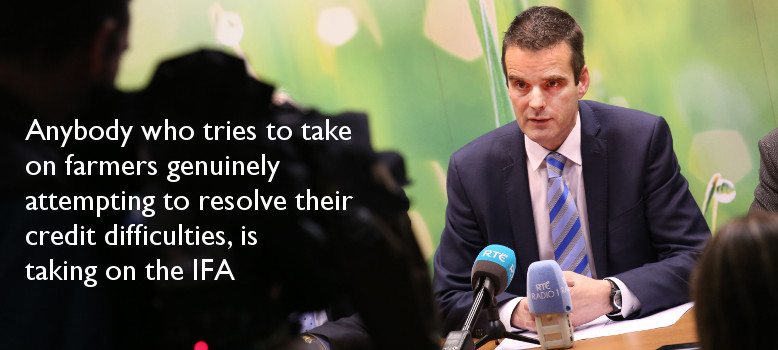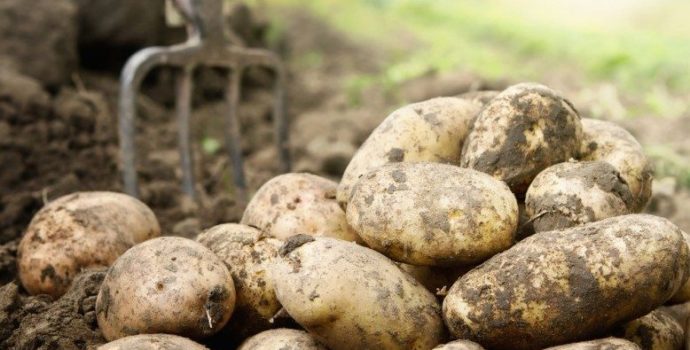IFA Launches Framework for Negotiations with Vulture Funds

IFA President Joe Healy has announced the key principles the Association will apply in dealing with vulture funds in support of farmers with credit difficulties, as well as a strengthened farmer support network to deal with individual credit cases.
The farm leader said that he wanted to send a strong and clear message that anybody who tries to take on farmers who are genuinely attempting to resolve their credit difficulties is taking on the IFA.
Joe Healy said, “Vulture funds want to exit the Irish market in a very short timeframe of three years or less. This is unacceptable, as it leaves absolutely no scope for the borrower to propose a medium or longer term solution”.
“These funds are taking a short-term and ruthless approach to farmers whose loans they have acquired. We cannot have a situation where farmers could be forced to sell their land when restructuring arrangements would allow them to pay off their loans over time.” he said.
The IFA President set out five key principles on which negotiations must be carried out, where the farmer is willing to engage in a reasonable way to reach a solution. “There is a fear of the unknown among the farming community. I want to reassure farmers with credit difficulties that IFA will provide strong support to help them to reach a sustainable solution.”
The IFA principles are
- No forced sale of farming assets, which undermines the viability of the family farm, and where the farmer has meaningfully engaged to find a workable solution.
- Full and final agreement must be reached between the borrower and loan owner prior to the disposal of any assets.
- Assets must be sold for their full market value and with proper advertising.
- No forced collection of debt that is not yet due.
- Where delays in arriving at a decision are due to the loan owner’s actions, there can be no interest or penalty accumulated on the outstanding debt in that time period.
The IFA Farm Business Committee is also strengthening the IFA’s support network to assist individual farmers in trying to resolve credit cases. IFA Farm Business Chairman Martin Stapleton said that this will consist of a team of farmers who have experience in dealing with credit cases.
The IFA Credit Helpline is 1890 924 853.
He said, “The number of cases involving credit difficulty that will come to a head in the next year or two is set to increase. We are encouraging farmers to seek assistance and to engage as early as possible. To loan owners, we are very clearly saying that IFA is standing strongly behind and directly supporting farmers to find a sustainable solution that protects the family farm”.
Engagement with Government
IFA has written to the Minister for Finance outlining its concerns on the damaging impact on, and threat to, family farms resulting from the purchase of distressed farm loans by vulture funds in recent years.
IFA has proposed that the funds that have purchased loans must be regulated. The Financial Regulator can only have proper oversight if they have information on the loan owners, the number of loans they own and the profile of borrowers. IFA also believes that farmer and other borrowers should be allowed to engage directly with the loan owners, and not operate through third party agencies only.
IFA has identified that there must be some means whereby information on the actions of these funds can be made publicly available, through Oireachtas scrutiny.
Overall, IFA has sought a stronger, and public, Government commitment to rebalancing the power between borrowers and loan owners.
Background to situation
The collapse of the financial system led to a number of banks exiting the Irish market, while others have sold some of their loan books to third parties as part of their restructuring process. Since 2015 in particular, there have been a number of loan sales that have included farm debt. As part of their ongoing restructuring processes, there is concern that other institutions may sell off some of their loan books, including farmer debt, in the coming months.
- The sector with the lowest share of performing loans transitioning to default has consistently been the Primary (PRI) sector, composed mostly of agricultural loans, where roughly one per cent (1%) of performing loans enters default each six months (Source: Central Bank SME Market report 2016 (H2).
- The Primary sector is also shown to have the highest share of defaulted loans transitioning back to performing status (7 per cent in the most recent period).
- Total debt outstanding by the agriculture sector at the end of 2016 was €3.4bn (Source: Central Bank Credit Advanced to Irish Resident Private Sector Enterprises, Sept 2016)




